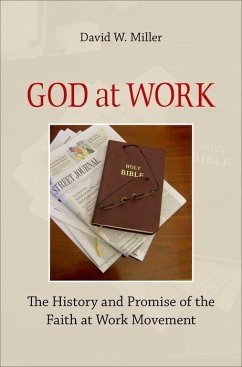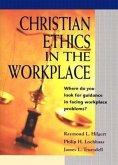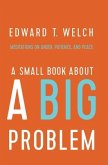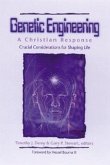In the 1980s, Miller shows, a complex set of independent developments gave rise to what is known as the Faith At Work movement (FAW). Drawing on insights of theological ethics as well as the sociology of religion, Miller analyzes the history of the movement, examines membership profiles and modes of expression, and constructs and proposes a new framework for discussing the movement.
What was once taboo - faith at work - is increasingly commonplace in corporate America. Indeed, some companies view it as best practice, part of a broader trend toward diversity, inclusion, and holistic treatment of people. Yet there are also challenges and pitfalls in managing a workforce that is religiously pluralistic. So is spirituality at work a passing fad like TQM and quality circles, or will it fundamentally change the landscape of corporate America? Miller, drawing on his own experience as a former senior executive in international business and finance, and now a theologian and ethicist, brings an unusual "bi-lingual" perspective to this topic. In God at Work Miller traces the history of the modern day Faith at Work movement from its roots in the late 19th century to its modern trajectory and formulation. Miller concludes there is a deep and lasting desire for workers and professionals to live a holistic life, to integrate the claims of their faith with the demands of their work. Drawing on his research and never-before documented evidence of the depth and breadth of spirituality at work, Miller concludes that faith at work is a bona fide social movement and here to stay. Miller identifies the variables that launched the modern faith at work movement, and captures the diversity of the movement and its participants in and alongside corporate America. He provides a helpful analytical tool, the Integration Box, to understand and study the movement and its participants. Miller also identifies the surprising abdication of this field by church and theological academy and, ironically, its embrace by the management academy. This resource-rich historical andcontemporary analysis of faith, religion, and spirituality at work points toward future research questions, and challenges business academics and executives, as well as theologians and clergy to engage on this topic and to participate in the transformative possibilities
Hinweis: Dieser Artikel kann nur an eine deutsche Lieferadresse ausgeliefert werden.
What was once taboo - faith at work - is increasingly commonplace in corporate America. Indeed, some companies view it as best practice, part of a broader trend toward diversity, inclusion, and holistic treatment of people. Yet there are also challenges and pitfalls in managing a workforce that is religiously pluralistic. So is spirituality at work a passing fad like TQM and quality circles, or will it fundamentally change the landscape of corporate America? Miller, drawing on his own experience as a former senior executive in international business and finance, and now a theologian and ethicist, brings an unusual "bi-lingual" perspective to this topic. In God at Work Miller traces the history of the modern day Faith at Work movement from its roots in the late 19th century to its modern trajectory and formulation. Miller concludes there is a deep and lasting desire for workers and professionals to live a holistic life, to integrate the claims of their faith with the demands of their work. Drawing on his research and never-before documented evidence of the depth and breadth of spirituality at work, Miller concludes that faith at work is a bona fide social movement and here to stay. Miller identifies the variables that launched the modern faith at work movement, and captures the diversity of the movement and its participants in and alongside corporate America. He provides a helpful analytical tool, the Integration Box, to understand and study the movement and its participants. Miller also identifies the surprising abdication of this field by church and theological academy and, ironically, its embrace by the management academy. This resource-rich historical andcontemporary analysis of faith, religion, and spirituality at work points toward future research questions, and challenges business academics and executives, as well as theologians and clergy to engage on this topic and to participate in the transformative possibilities
Hinweis: Dieser Artikel kann nur an eine deutsche Lieferadresse ausgeliefert werden.








